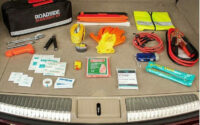After running for a little while improving your endurance, you may want to focus on a new goal, running faster. Here are some simple things you can do to start running faster and improve your running times:
Table of Contents
Be prepared for a little discomfort
Some beginners find it difficult to run faster because they are afraid of feeling uncomfortable. But one of the first steps to going faster is learning what it is to step up the pace. When you push yourself during a speed workout, expect to run out of breath and feel your leg muscles burn.
Work on your strides
If you can increase your number of strides per minute, you will run faster. Start by running at your 5 km pace for 30 seconds counting each time your right foot hits the ground. Then jog for a minute to cool down and run for another 30 seconds, this time trying to increase the total count. Concentrate on landing small, light and fast steps, as if you were walking on hot coals.
Try interval workouts
The workouts rangeare a fun way to work on your speed. You can do track workouts, such as 400m reps (one lap). After a 5-10 minute warm-up, alternate between running a 400m at your own pace 5km and a slower jog for easy recovery. Start with two or three repetitions (400m with recovery time between each), and try to work your way up to five or six. Or, if you are running on the road, you can use street lights or telephone poles to mark intervals. After warming up, try sprinting two lampposts, then recovering in two, and keep repeating the pattern until you’ve already walked two kilometers.
Take a quick run once a week
A quick run will help you build your anaerobic threshold, which is essential for running faster. To do a fast run, start your run with 5-10 minutes of easy running, then continue with 15-20 minutes of running about 10 seconds faster than your 10k pace. Finish with 5 to 10 minutes of cooling. If you are unsure of your 10k pace, run at a pace that feels “comfortably hard.” You shouldn’t be able to speak in full sentences.

Try hill workouts
the hills of repetitions are an effective way to build the racing force. Find a fairly steep slope that is about 100 yards long. Run hard to the top of the hill, and jog slowly down. Start with 3-4 repetitions once a week, and work your way up to 6-7 reps.
Lose Weight
If you’re already trying to lose a few pounds , here’s more motivation: Research has shown that, on average, runners gain three seconds per kilometer for every pound they lose. For example, losing 12 pounds cuts about a minute from your 5 km run time.

Remember Rest Days
Don’t assume that hard jogging every day will make you go faster. Rest is essential to your recovery and injury prevention efforts, so remember to take at least one full day off each week. Your muscles build and regenerate on their own on your days off. So if you go every day without taking a day off, you won’t see much improvement.
Be a smart runner
It’s possible to cut yourself a few seconds, see minutes from your finish time with smart racing strategies, such as making sure you don’t start too fast. Try a few strategies to run faster.










